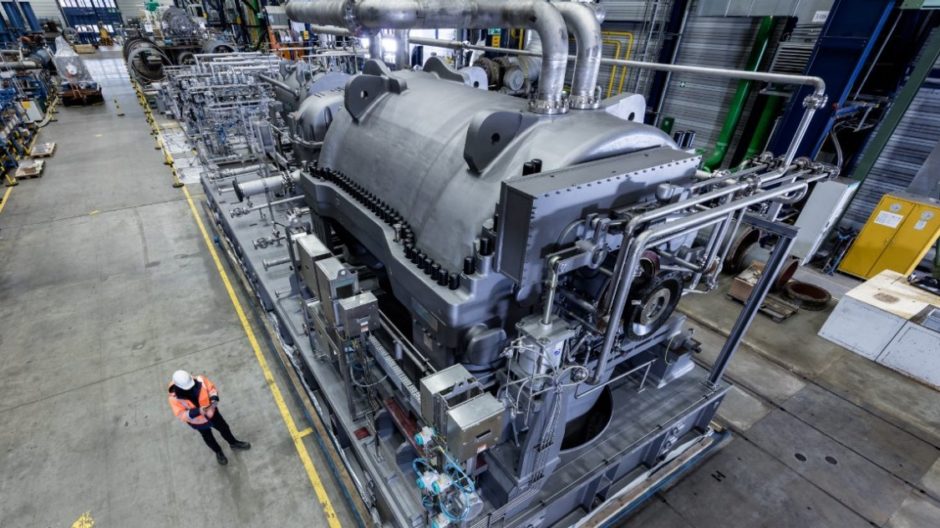
Siemens Energy has signed up to work with Adnoc to account for the emissions linked to production.
The energy technology company will gather data from across the production chain to assess the amount of CO2 emitted from products. Siemens Energy will use blockchain technology to certify the Adnoc products, which include Murban crude, ammonia and aviation fuels.
“The use of decentralised ledgers has significant implications for the energy industry”, said Adnoc executive director for people, technology and corporate support Abdulmunim Saif Al Kindy. “This pilot promises to shine a digital spotlight into our manufacturing processes. It will show the world why energy supplied by Adnoc is among the least carbon intensive in the oil and gas industry.”
Laying out the data behind Adnoc’s carbon accounting will inform regulators of products. It will also give consumers insight into their own emissions.
Siemens Energy Middle East CTO Fahad Al Yafei said it would take 18 months to make the project operational.
Vinod Philip, a member of the company’s executive board, compared it with a hydrogen project the company is working on in Chile.
The carbon blockchain accounting was part of a broader agreement between Adnoc and Siemens Energy. The two also agreed to work together on decarbonisation and the clean energy transition.
Al Yafei said the two companies would together to “develop solutions that will benefit the entire energy industry. Investing in innovation and the co-creation of technologies are vital tools for reducing emissions and meeting Net Zero targets.”
The two will begin the collaborative practice by the end of this year.
Innovation centre
Siemens Energy and Khalifa University of Science and Technology also struck an agreement at Adipec.
The university will host Siemens Energy’s local innovation centre.
Al Yafei said the deal would be “mutually beneficial”. It will provide “opportunities for co-research, internships and training, and for Siemens Energy experts to be visiting lecturers”.
Recommended for you

